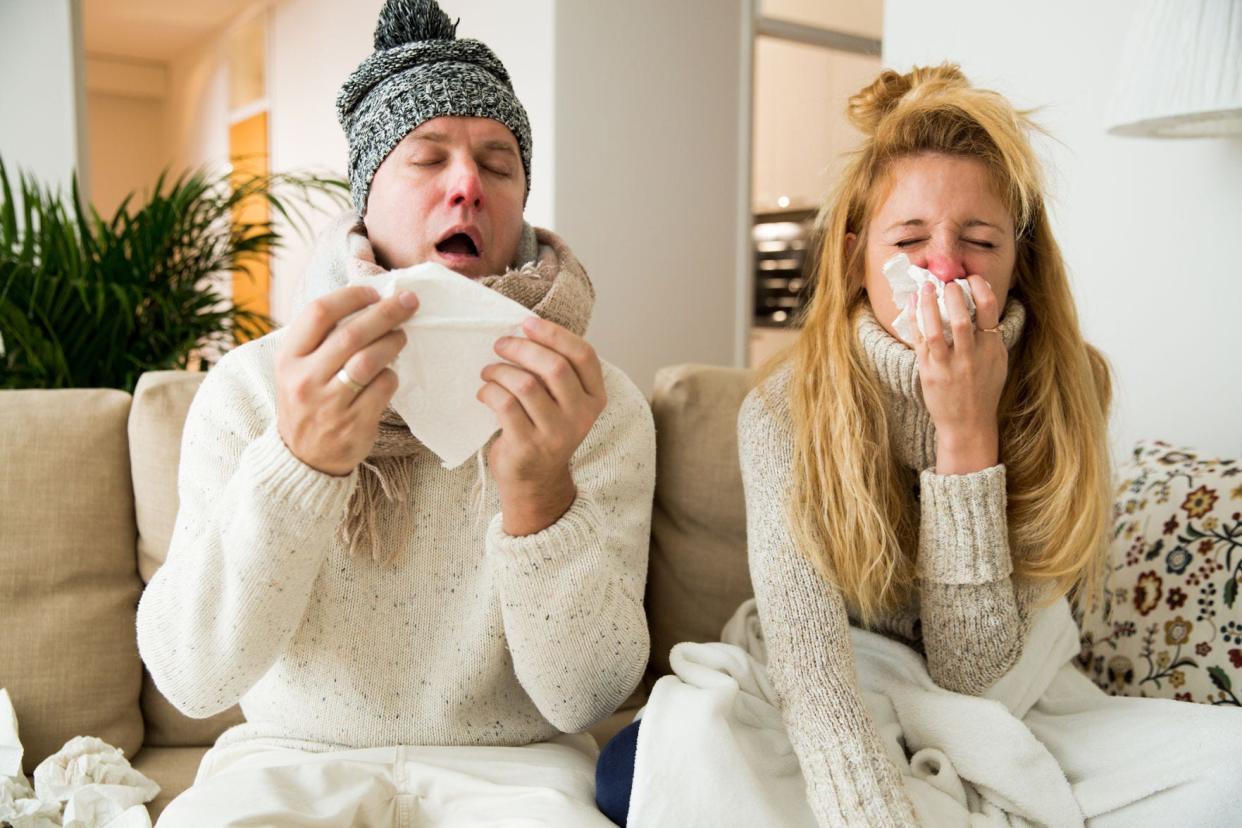New findings show how cold temps affect your immune system (Hint: it's in the nose)


It happens every time we have a real cold snap.
It happened over the long Christmas weekend when temperatures dipped into the 30s and it happened again last month when we had several consecutive days with lows around 40 degrees.
During these South Florida “wintry” stretches, my glands and lymph nodes will feel tender and a little swollen — and I’ll feel as if I’m right on the verge of coming down with a flu bug.
More Health Matters:Be on the lookout for these fitness trends in 2023
For decades I assumed this was just a psychosomatic response to a drop in temperature — but it turns out I may not have been imagining my symptoms after all.
That’s because a new study suggests that there is a biological response in our bodies to cold weather that may impact how our immune system reacts to viruses.

New finding in Harvard research
In December Harvard Medical School researchers at Mass Eye and Ear, with colleagues at Northeastern University, reported that they had discovered a previously unidentified immune response inside the nose that fights off viruses responsible for upper respiratory infections.
What’s more, further testing revealed this protective response becomes inhibited in colder temperatures, making an infection more likely to occur.
Their report was published in the Dec. 6 Journal of Allergy and Clinical Immunology and identifies the first biological mechanism to explain why cases of the common cold, flu, and COVID-19 are more likely to spike during colder times of the year.
“Conventionally, it was thought that cold and flu season occurred in cooler months because people are stuck indoors more where airborne viruses could spread more easily,” said Dr. Benjamin Bleier, Harvard Medical School associate professor of otolaryngology head and neck surgery at Mass Eye and Ear and senior author of the study. “Our study, however, points to a biological root cause for the seasonal variation in upper respiratory viral infections we see each year, most recently demonstrated throughout the COVID-19 pandemic.”

When Bleier appeared on "PBS NewsHour" last month he further expounded on the findings: “What our study found, which takes off on some work we had done previously, several years ago, was that inside the front of our noses, when we're exposed to a virus, there's a whole sort of war going on. Whereas when our nose detects the presence of a virus, the cells released these swarms of bubbles, which we call vesicles, that have several functions. One is they actually bind to the virus. They stick to the viruses themselves sort of mopping up the virus before it has a chance to infect ourselves. But not only that, but these bubbles actually directly kill the virus when they bind to it.”
Essentially, the nose is the first point of contact we have when we're exposed to viruses — and the vesicles are our first line of defense.
Bleier then explained that what he and his team found was that when the front of the nose was exposed to cold — in the study’s case, 40 degrees — the temperature of the nose was 9 degrees lower than what it is at normal room temperature.
The researchers picked the 40-degree range, Bleier said “because this is sort of a typical winter that we would see here up in Boston.”
The effect on our immune system of a nose exposed to 40 degrees is fairly profound.
“Just that modest drop in temperature decreases all of these immune functions of these little vesicles by about half,” explained Bleier. “And so what that translates to is that there's about twice as much virus able to get into our cells and replicate just after exposure to this small drop in air temperature.”
Bleier noted that these findings will likely change how health-care providers and researchers view traditional cold and flu season.
“Prior to this study, there's been a lot of sort-of speculation as to why we see this very constant pattern year over year as the temperature drops; we see higher rates of respiratory infections. People used to say that, well, maybe people are gathering more indoors and that's why. But we all know that in our modern society, we're indoors all year-round.”
Making use of the findings
So now that we know how the nose and our immune system responds to cold weather, how can researchers make use of the findings?
They believe the first step will be in creating potential therapies to ward off colds and viruses. These therapeutics will be designed to induce and strengthen the nose’s innate immune response.
“We hope our findings can lead to therapeutic approaches to bolster the innate immune response inside the nose or increase the number of extracellular vesicles, such as through a nasal spray,” said Bleier.
In the meantime, though, during the height of cold and flu season, Bleier and his colleagues recommended you wash your hands frequently and perhaps mask up when you’re in densely populated indoor areas — as well as when you head outdoors in the cold.
This article originally appeared on Palm Beach Post: How newly identified immune response will influence ways to fight illness

